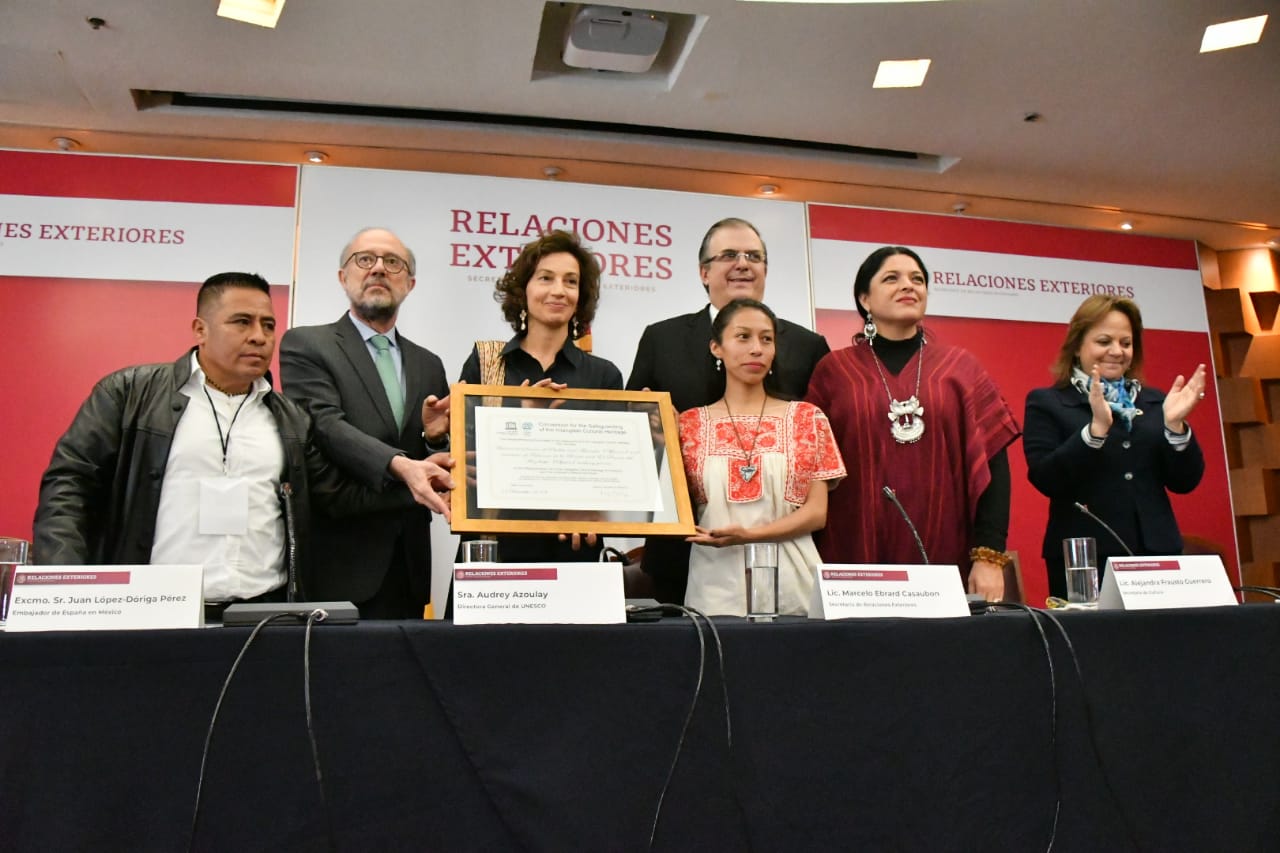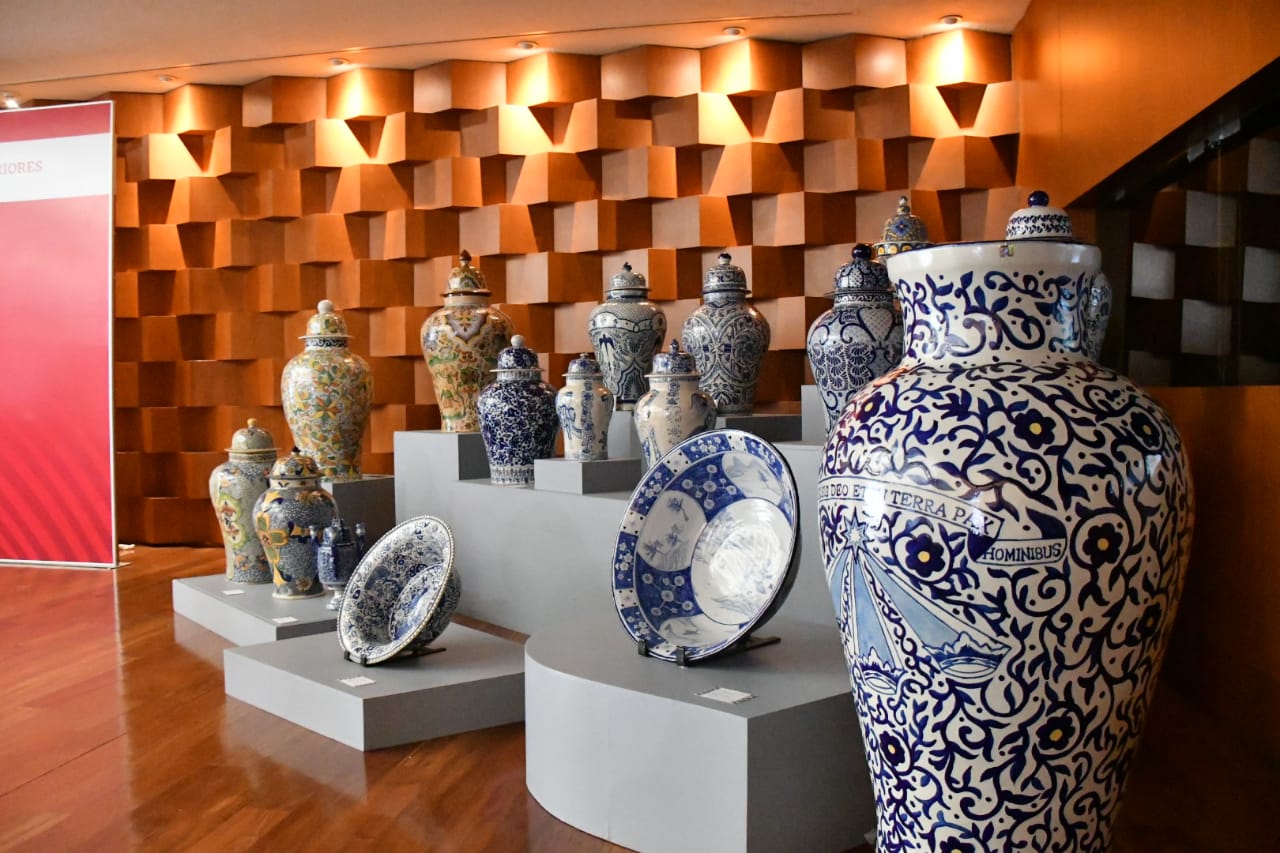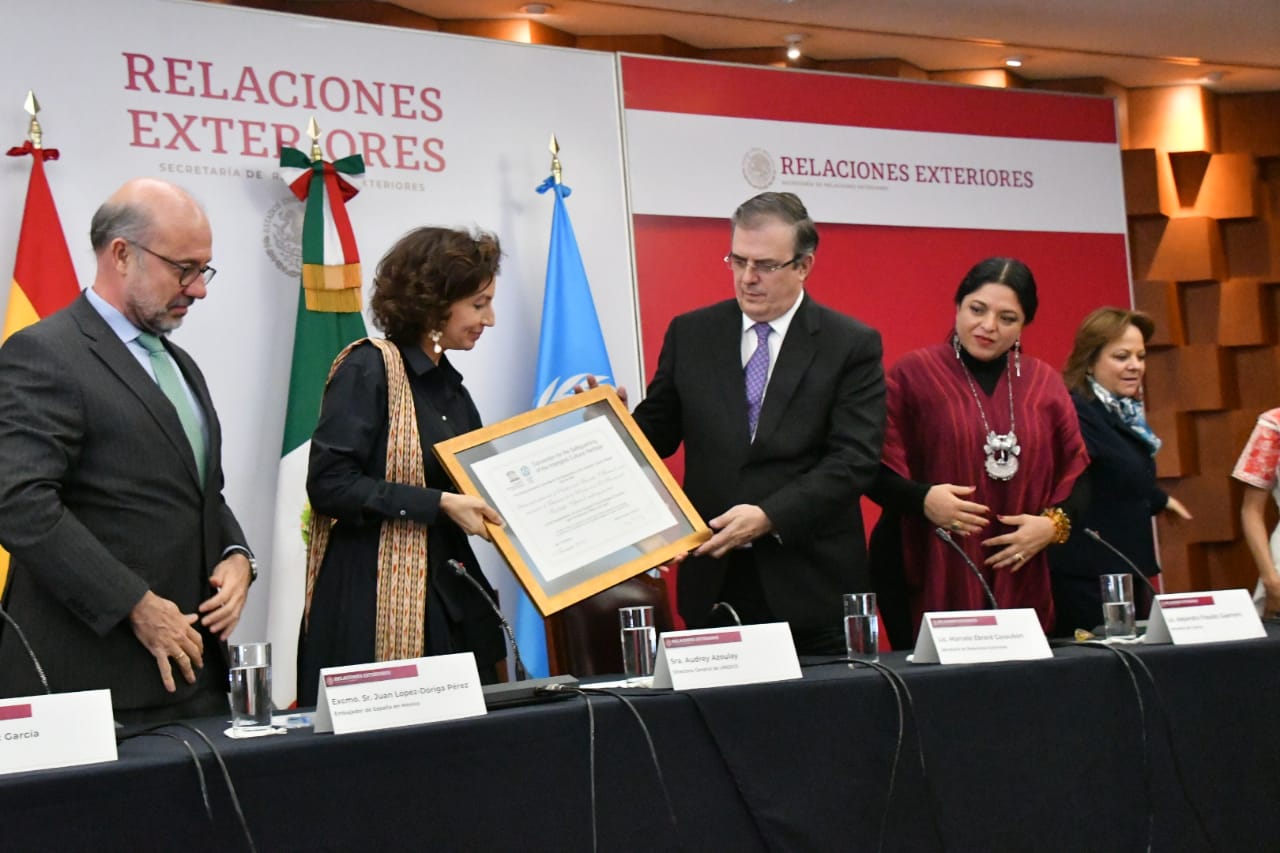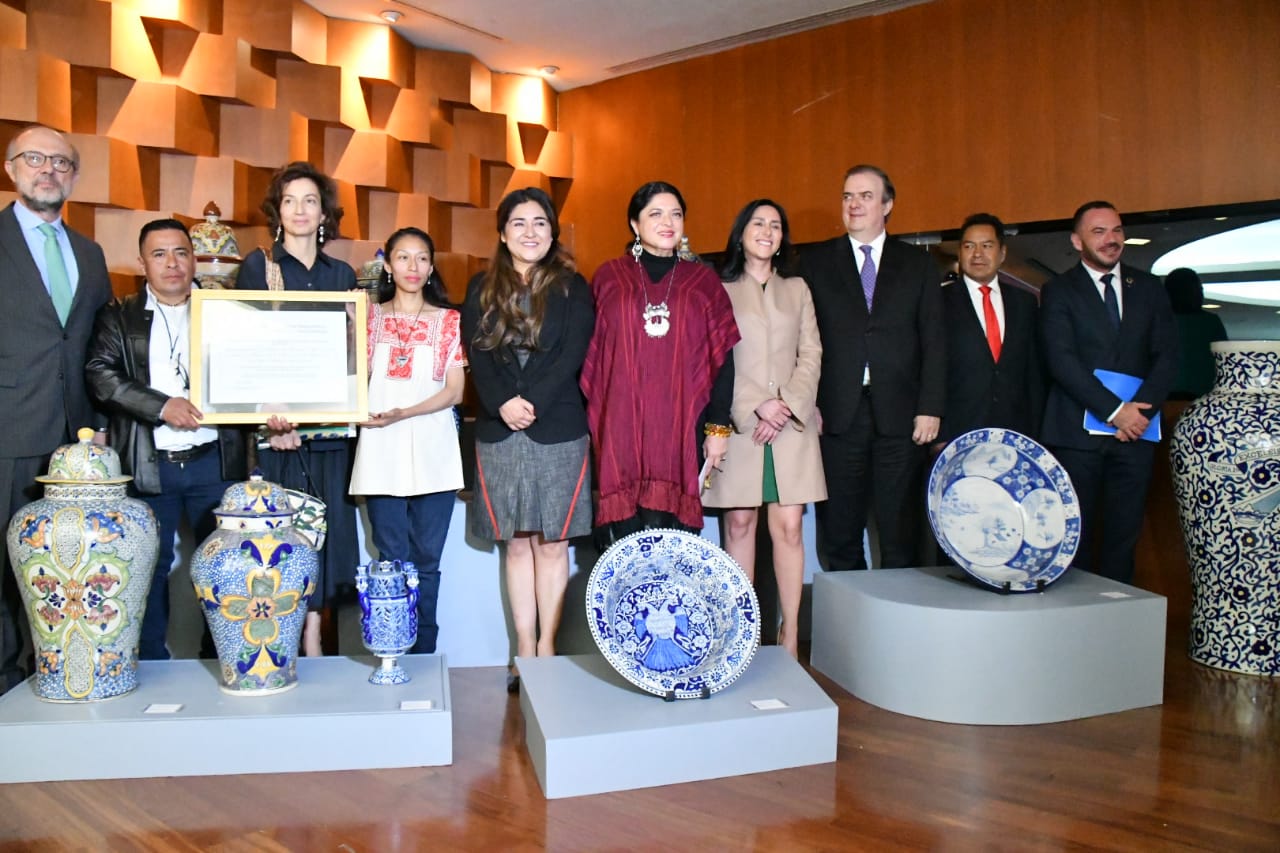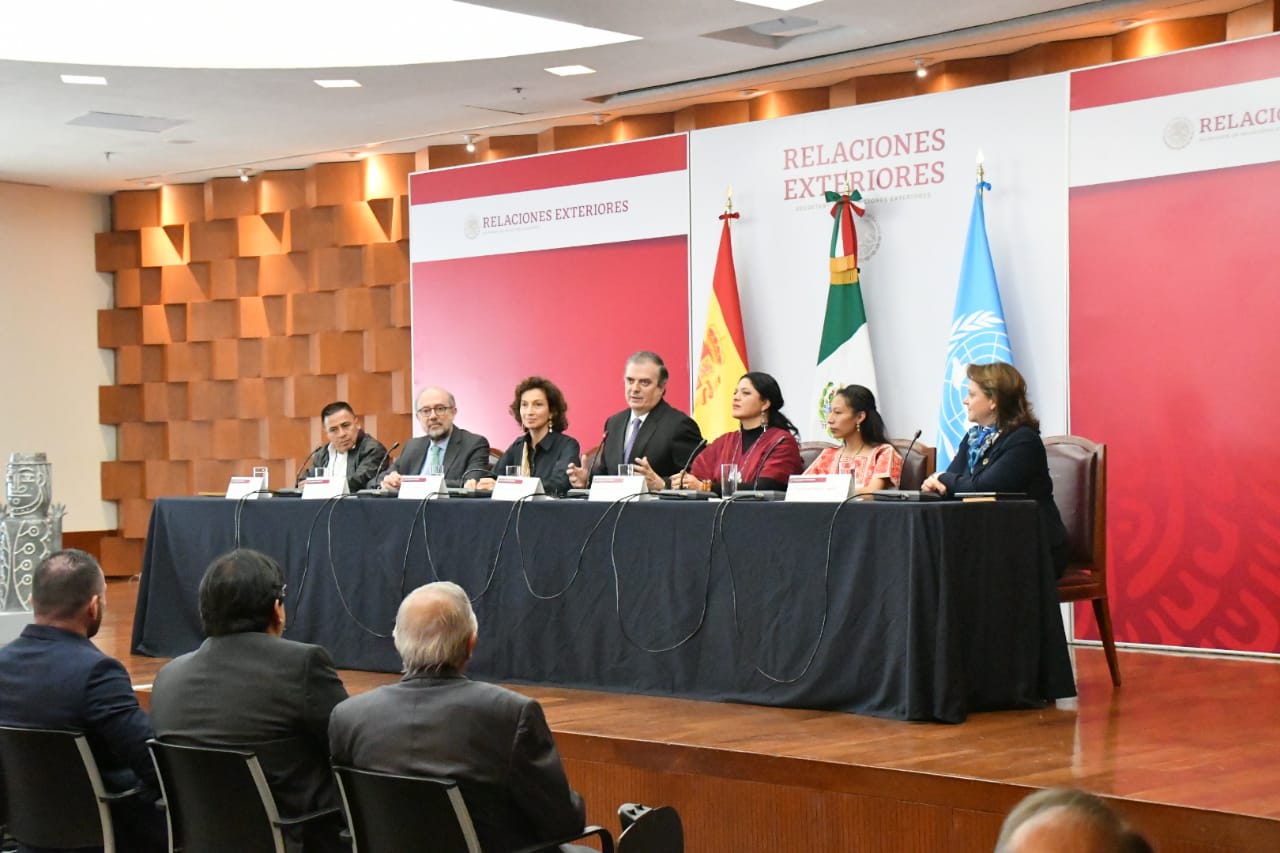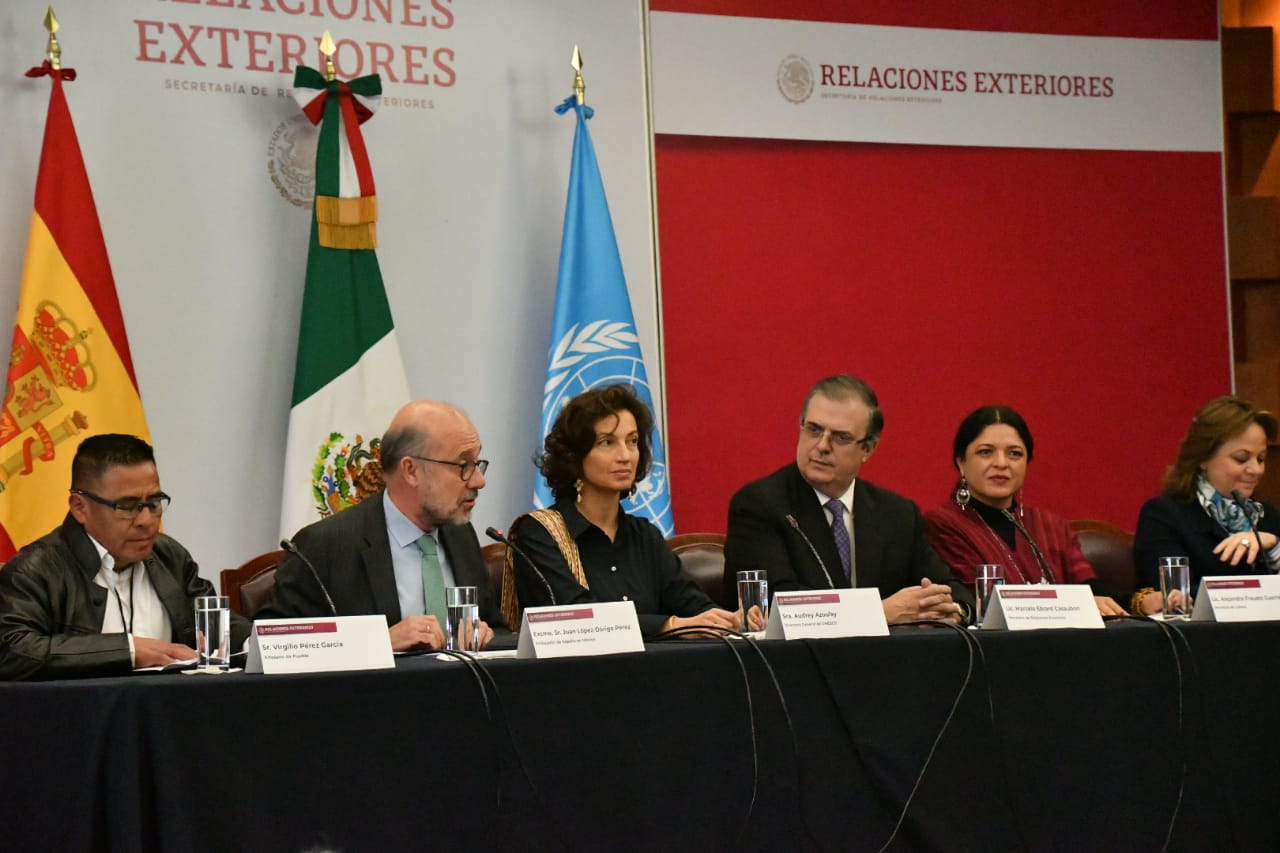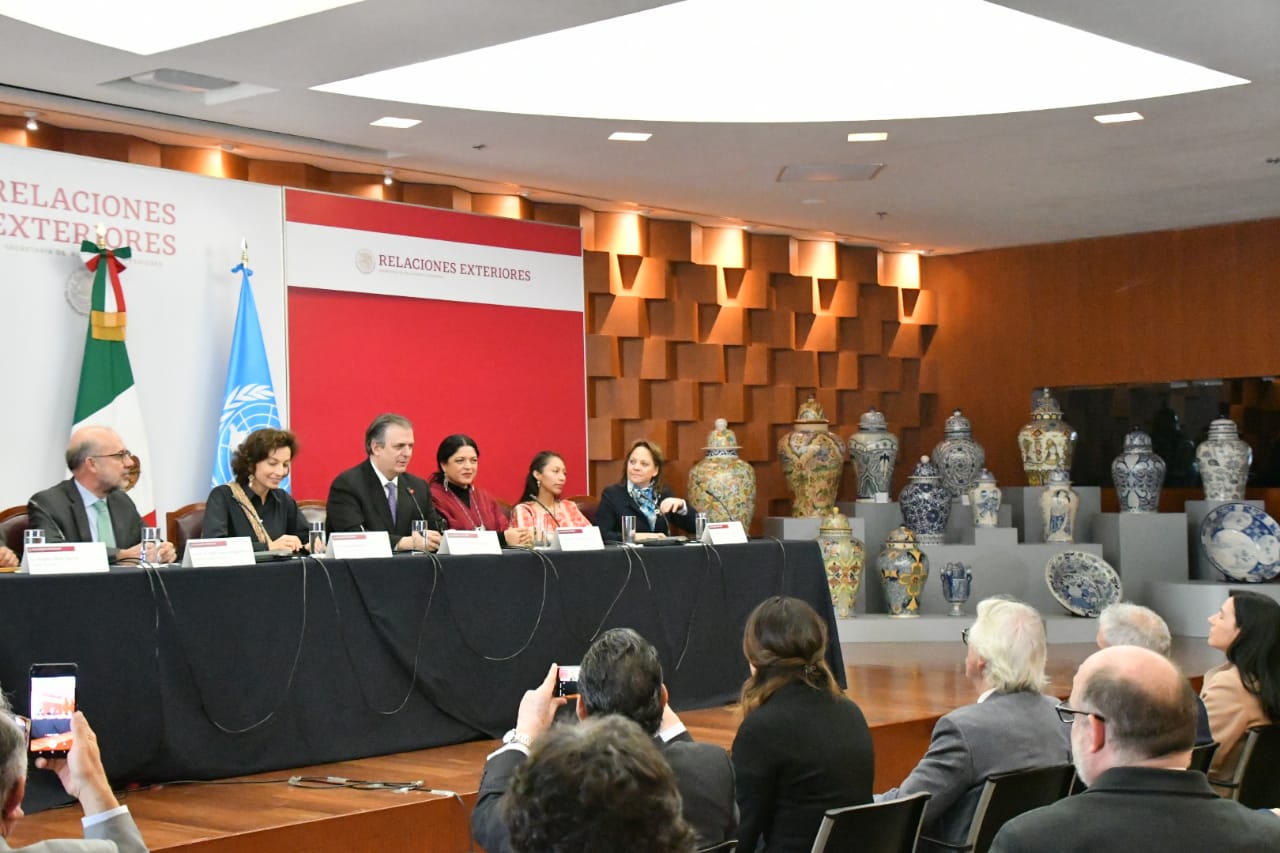• Culture Secretary Alejandra Frausto and Foreign Secretary Marcelo Ebrard accepted the certificate from UNESCO Director General Audrey Azoulay.
• Talavera pottery was declared intangible cultural heritage of both Mexico and Spain on December 11, 2019 in Bogotá, Colombia.
The Director-General of the United Nations Educational, Scientific and Cultural Organization (UNESCO), Audrey Azoulay, delivered the Binational Registration Certificate (Mexico/Spain) for the manufacturing process of the ceramic for Talavera as intangible cultural heritage of humanity.
In an official ceremony held at the Foreign Ministry, the Secretaries of Culture, Alejandra Frausto, and Foreign Affairs, Marcelo Ebrard, received the certificate.
Audrey Azoulay, who was making her first trip to Mexico, gave the floor to UNESCO Deputy Director-General for Culture, Ernesto Ottone Ramírez, who commented on the intense work done on December 11 in Bogotá, Colombia during the 14th session of the Intergovernmental Committee for the Safeguarding of the Intangible Cultural Heritage to inscribe talavera on the UNESCO list.
This effort is part of the emphasis given in recent years to multinational candidates, “not only because we are interested in having nations join the list, but because the diversity between continents enriches the diversity of what UNESCO represents and its mandate," he said.
“We must understand that intangible heritage is living heritage and the artisans who are with us today are safeguarding the heritage that governments are committed to sustaining with public policies and, above all, because it allows us to dream about providing continuity to this heritage. We hope that every time such fundamental parts of the cultures of nations and UNESCO member states are presented, it is with this sense of identity and respect and with a vision of the future.”
Culture Secretary Alejandra Frausto also discussed the commitment inherent in inscribing talavera on the Intangible Cultural Heritage List. She spoke out for safeguards that ensure the sustainability of the whole process - including its manufacture and by providing workshops with the resources they need to operate, in addition to marketing, on behalf of the artisans who are carrying on this tradition.
The secretary emphasized the incorporation of the National Foundation for the Promotion of Handicrafts (Fonart) into the Culture Ministry, which makes it possible to showcase Mexican handicrafts as sophisticated and excellent products: "All artisanal techniques are artistic techniques and those who make these crafts put their heart into each of them."
The case of the talavera of Puebla and Tlaxcala is an example of this. It is directly descended from the "Talavera de la Reina” or ‘Queen's talavera’ that arrived in Mexico on the Manila Galleon in colonial times.
“Since pre-Hispanic times, Mexico has been a country molded from clay. This dialogue between earth, water and fire fully aligned with the Spanish pottery tradition, so that the creation of talavera occurred very naturally and is recognized today as Intangible Cultural Heritage of Humanity,” said Secretary Frausto.
Foreign Secretary Marcelo Ebrard pointed out the deep roots that unite Spain and Mexico, and commended the talavera artisans “who have defended this tradition and have contributed new elements to survive in a modern world. It is not only about conserving a craft, but about seeing how we address new challenges, and technological and social change."
The event was attended by the Deputy Secretary for Multilateral Affairs and Human Rights of the Foreign Ministry, Martha Delgado; the Spanish Ambassador in Mexico, Juan López-Dóriga, and artisans Virgilio Pérez García and Jacqueline España.
“Today we represent hundreds of generations that have kept talavera alive. We thank those who dig the clay, knead it, clean it, and mold it; to those who prepare the enamel and natural colors; who transfer the capricious forms onto the surface; who give them color and bake the pieces, as well as those who showcase it around the world and make and effort to maintain its quality."
"This recognition inspires us to continue giving the best of us, because talavera is more than a craft, talavera is identity, passion, harmony and beauty," said Virgilio Pérez on behalf of the artisans.
The declaration is an opportunity to protect living practices, expressions and production processes and, mainly, traditional knowledge about to talavera, and to eliminate its inappropriate use and the cheapening of this knowledge.
Further information about the inscription of the processes of making the artisanal talavera of Puebla and Tlaxcala (Mexico) and the ceramics of Talavera de la Reina and El Puente del Arzobispo (Spain) on the Representative List of the Intangible Cultural Heritage of Humanity can be found here: https://www.gob.mx/cultura/prensa/la-talavera-patrimonio-cultural-inmaterial-de-la-humanidad-desde-este-11-de-diciembre
